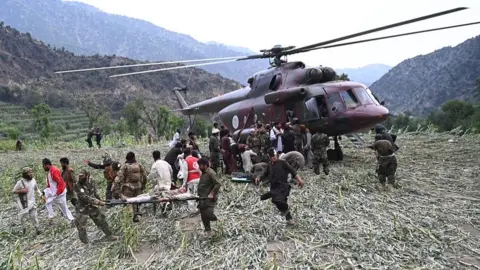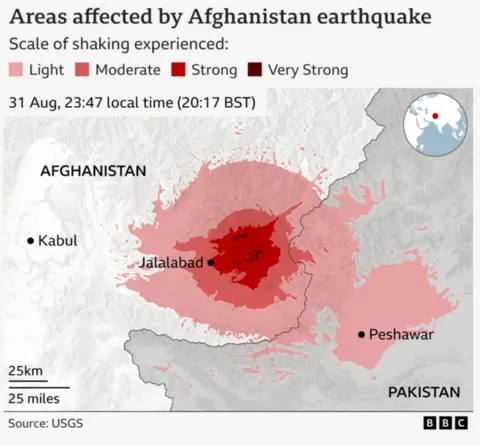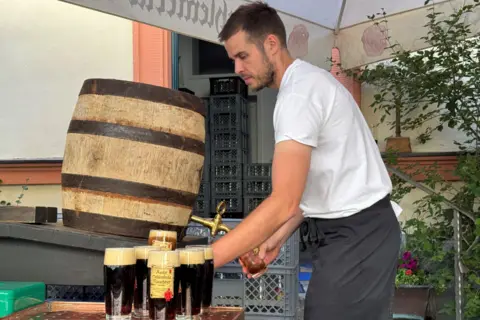Survivors, liberators, their families, dignitaries, and members of the community came together to mark the 80th anniversary of the liberation of the Dachau concentration camp this past Sunday, shining a light on history’s darkest moments and the imperative to remember.
Locked within his memories, 100-year-old Locker Gahs, known informally as Bud, recounted that when he and his fellow soldiers from the 42nd Infantry Division first entered Dachau in 1945, they were confronted with the horrific reality of human suffering. "When we opened the gates to Dachau, it was only then that we truly understood what we had been fighting for," Gahs shared with an audience that included other survivors and members of the community.
During their advance, the soldiers had stumbled upon grotesque scenes of piled bodies within train wagons, but nothing prepared them for the abject despair of the survivors. Malnourished and emaciated, the sight of the liberated prisoners haunted these soldiers, transforming their understanding of the war into a stark realization of its brutalities.
Among the commemorators was 101-year-old Jean Lafaurie, who bore witness to the atrocities while imprisoned at Dachau after being arrested in his native France. Reflecting on his experience, Lafaurie discussed the inhumane treatment endured by the countless individuals who were unjustly detained and tortured within the camp’s walls.
As time passes, the surviving witnesses, both liberators and victims, are dwindling. Their stories serve as crucial reminders that vigilance against hatred and intolerance remains necessary, especially as far-right ideologies gain traction in parts of Europe and beyond. The commemoration of this pivotal moment in history not only honors those who suffered and fought for freedom but also serves as a clarion call to generations that follow; to learn from the past, acknowledge the ongoing ramifications of its lessons, and stand steadfast against the shadows that threaten democracy and human rights.



















